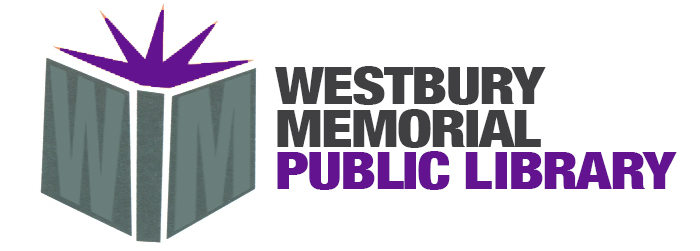Librarian's Pick
Here's what our librarians are reading lately.Librarian’s Pick: The loop – Jeremy Robert Johnson
 “Turner Falls is a small tourist town nestled in the hills of western Oregon, the kind of town you escape to for a vacation. When an inexplicable outbreak rapidly develops, this idyllic town becomes the epicenter of an epidemic of violence as the teenaged children of several executives from the local biotech firm become ill and aggressively murderous. Suddenly the town is on edge, and Lucy and her friends must do everything it takes just to fight through the night.”
“Turner Falls is a small tourist town nestled in the hills of western Oregon, the kind of town you escape to for a vacation. When an inexplicable outbreak rapidly develops, this idyllic town becomes the epicenter of an epidemic of violence as the teenaged children of several executives from the local biotech firm become ill and aggressively murderous. Suddenly the town is on edge, and Lucy and her friends must do everything it takes just to fight through the night.”
Librarian’s Pick: The invisible Life Of Addie LaRue – V.E. Schwab
 “The Invisible Life of Addie LaRue, the reader first meets Addie as she is fleeing a life she doesn’t want, one that has been chosen for her by her parents. In the year 1714 in Villon, France, 23-year-old Addie is being forced to marry a widower from her village whose children are in want of a stepmother. Instead of submitting, Addie runs. “She doesn’t slow, doesn’t look back; she doesn’t want to see the life that stands there, waiting. Static as a drawing. Solid as a tomb. Instead, she runs.”
“The Invisible Life of Addie LaRue, the reader first meets Addie as she is fleeing a life she doesn’t want, one that has been chosen for her by her parents. In the year 1714 in Villon, France, 23-year-old Addie is being forced to marry a widower from her village whose children are in want of a stepmother. Instead of submitting, Addie runs. “She doesn’t slow, doesn’t look back; she doesn’t want to see the life that stands there, waiting. Static as a drawing. Solid as a tomb. Instead, she runs.”
She also prays to the old gods, as her friend Estele, the village witch, has taught her. Estele warned her never to pray to the gods that answer after dark, but as dusk bleeds into night, Addie accidentally conjures just such a god, whom she will come to know as Luc. He promises Addie of “time without limit, freedom without rule” in exchange for her soul. Only after the deal is struck does Addie understand the secret cost of this arrangement. She can live for a thousand years if she likes, but nobody will ever remember her. Until one day, in New York City in the year 2014, she walks into a bookstore and, for the first time in 300 years, someone does. It’s a twist that changes everything she thought she knew about her future and the decisions that await her.
At the heart of this novel is a meditation on legacy, time and the values each person uses to guide their path. Freed from a life’s traditional arc of aging and transitions, the indefatigable Addie must proactively decide how she wants to spend her days and which sacrifices are worth her soul’s survival. This is a hopeful book from an author who is known for dark, violent stories, which makes it both a delightful surprise and a balm in difficult times.”
Librarian’s Pick: When No One Is Watching – Alyssa Cole
 “Sydney Green is Brooklyn born and raised, but her beloved neighborhood seems to change every time she blinks. Condos are sprouting like weeds, FOR SALE signs are popping up overnight, and the neighbors she’s known all her life are disappearing. To hold onto her community’s past and present, Sydney channels her frustration into a walking tour and finds an unlikely and unwanted assistant in one of the new arrivals to the block—her neighbor Theo.
“Sydney Green is Brooklyn born and raised, but her beloved neighborhood seems to change every time she blinks. Condos are sprouting like weeds, FOR SALE signs are popping up overnight, and the neighbors she’s known all her life are disappearing. To hold onto her community’s past and present, Sydney channels her frustration into a walking tour and finds an unlikely and unwanted assistant in one of the new arrivals to the block—her neighbor Theo.
But Sydney and Theo’s deep dive into history quickly becomes a dizzying descent into paranoia and fear. Their neighbors may not have moved to the suburbs after all, and the push to revitalize the community may be more deadly than advertised.
When does coincidence become conspiracy? Where do people go when gentrification pushes them out? Can Sydney and Theo trust each other—or themselves—long enough to find out before they too disappear?”
Librarian’s Pick: Think Like A Monk – Jay Shetty
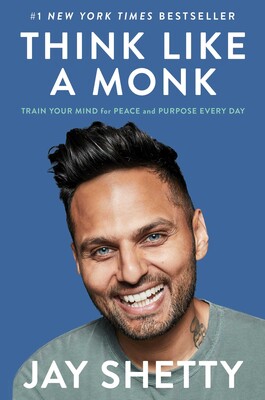 “Shetty grew up in a family where you could become one of three things—a doctor, a lawyer, or a failure. His family was convinced he had chosen option three: instead of attending his college graduation ceremony, he headed to India to become a monk, to meditate every day for four to eight hours, and devote his life to helping others. After three years, one of his teachers told him that he would have more impact on the world if he left the monk’s path to share his experience and wisdom with others. Heavily in debt, and with no recognizable skills on his résumé, he moved back home in north London with his parents.
“Shetty grew up in a family where you could become one of three things—a doctor, a lawyer, or a failure. His family was convinced he had chosen option three: instead of attending his college graduation ceremony, he headed to India to become a monk, to meditate every day for four to eight hours, and devote his life to helping others. After three years, one of his teachers told him that he would have more impact on the world if he left the monk’s path to share his experience and wisdom with others. Heavily in debt, and with no recognizable skills on his résumé, he moved back home in north London with his parents.
Shetty reconnected with old school friends—many working for some of the world’s largest corporations—who were experiencing tremendous stress, pressure, and unhappiness, and they invited Shetty to coach them on well-being, purpose, and mindfulness. Since then, Shetty has become one of the world’s most popular influencers. In 2017, he was named in the Forbes magazine 30-under-30 for being a game-changer in the world of media. In 2018, he had the #1 video on Facebook with over 360 million views. His social media following totals over 38 million, he has produced over 400 viral videos which have amassed more than 8 billion views, and his podcast, On Purpose, is consistently ranked the world’s #1 Health and Wellness podcast.
In this inspiring, empowering book, Shetty draws on his time as a monk to show us how we can clear the roadblocks to our potential and power. Combining ancient wisdom and his own rich experiences in the ashram, Think Like a Monk reveals how to overcome negative thoughts and habits, and access the calm and purpose that lie within all of us. He transforms abstract lessons into advice and exercises we can all apply to reduce stress, improve relationships, and give the gifts we find in ourselves to the world. Shetty proves that everyone can—and should—think like a monk.”
Librarian’s Pick: The Lying Life of Adults – Elena Ferrante
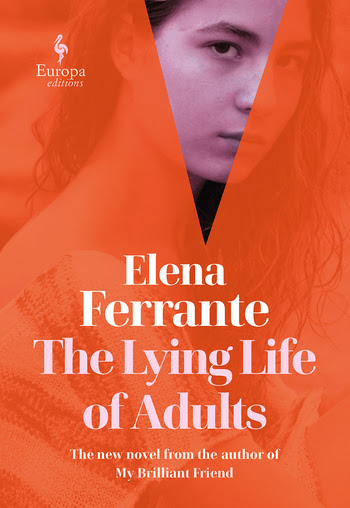 “Dutiful, bookish and sweet, Giovanna is on the cusp of puberty when she overhears her father comparing her to his ugly sister. Used to receiving compliments, Giovanna is alarmed but curious, and despite her parents’ concerns, she initiates a relationship with her tempestuous Aunt Vittoria. As Giovanna learns more about her father’s background, she begins to see how her parents’ lies and treachery have impacted their lives as well as hers.
“Dutiful, bookish and sweet, Giovanna is on the cusp of puberty when she overhears her father comparing her to his ugly sister. Used to receiving compliments, Giovanna is alarmed but curious, and despite her parents’ concerns, she initiates a relationship with her tempestuous Aunt Vittoria. As Giovanna learns more about her father’s background, she begins to see how her parents’ lies and treachery have impacted their lives as well as hers.
Giovanna travels between areas of Naples so different, they might as well be opposing planets: from the comfortable, progressive household where she was raised with a secular education, including access to sex education, to her aunt’s working-class neighborhood, which is mired in violence, religion and superstitions, all expressed in the dialect that Giovanna’s parents forbade her to speak at home.
Ferrante’s ability to draw in her reader remains unparalleled, and the emotional story is well served by Ann Goldstein’s smooth and engaging translation. The novel simmers with overt rage toward parental deception, teachers’ expectations and society’s impossible ideals of beauty and behavior. For readers who are familiar with Ferrante’s work, there will be much that is recognizable: the belief that poverty can be transcended through education, the power of a talismanic object (in this case, a bracelet that may or may not have belonged to Giovanna’s paternal grandmother) and the absurd linkage of physical beauty with purity and goodness. There is even an unattainable man who holds the promise of escape.
But The Lying Life of Adults is very much its own story. Giovanna’s self-reliance and her efforts to become the kind of adult she has yet to meet will resonate with thoughtful readers.”
Librarian’s Pick: Grand – Charles Johnson
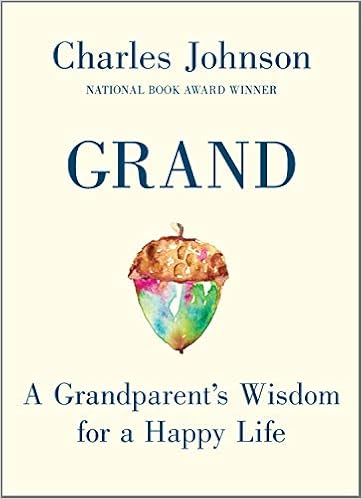 “An award-winning novelist, philosopher, essayist, screenwriter, professor and cartoonist, Charles Johnson has held numerous impressive titles over the course of his incomparable career. Now, for the first time, with his trademark wisdom and philosophical generosity, he turns his attention to his most important role yet: grandparent.
“An award-winning novelist, philosopher, essayist, screenwriter, professor and cartoonist, Charles Johnson has held numerous impressive titles over the course of his incomparable career. Now, for the first time, with his trademark wisdom and philosophical generosity, he turns his attention to his most important role yet: grandparent.
In Grand, Johnson shares stories from his life with his six-year-old grandson, Emery, weaving in advice and life lessons that stand the test of time. “Looking at the problems I see in the world around me,” Johnson writes, “I realize that there are so many things I want to say to him about the goodness and beauty that life offers. What are the perennial truths that I can impart to Emery that might make his journey through life easier or more rewarding?” Johnson shares these truths and more, offering profound meditations on family, race, freedom and creativity.
Joyful, lucid and deeply comforting, Grand is Johnson at his most accessible and profound, an indispensable compendium for new grandparents and growing grandchildren alike, from one of America’s most revered thinkers.”
Librarian’s Pick: Transcendent Kingdom – Yaa Gyasi
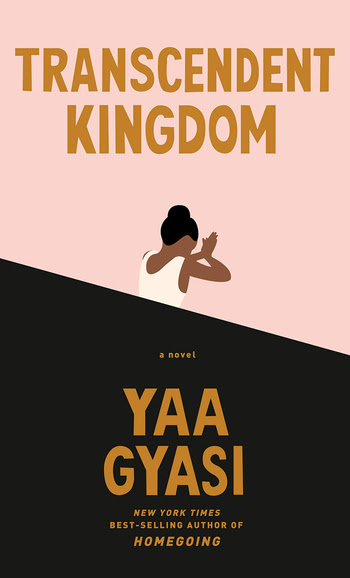 “Gifty was born in Huntsville, Alabama, after her family emigrated from Ghana. Now she’s finishing up a Ph.D. at Stanford, studying addiction and reward-seeking behaviors in mice. She has a personal connection with her chosen subject: When she was 10, her adored older brother, Nana, died of a heroin overdose after a basketball injury left him hooked on opioids. Their mother spiraled into depression soon after. Over a decade later, Gifty brings her mother to California after the older woman shows signs of another approaching breakdown. As Gifty keeps a watchful eye on her mother and continues her research, she begins to experience the pull of the strong evangelical Christian faith of her childhood, which she’d intended to leave behind in Alabama.
“Gifty was born in Huntsville, Alabama, after her family emigrated from Ghana. Now she’s finishing up a Ph.D. at Stanford, studying addiction and reward-seeking behaviors in mice. She has a personal connection with her chosen subject: When she was 10, her adored older brother, Nana, died of a heroin overdose after a basketball injury left him hooked on opioids. Their mother spiraled into depression soon after. Over a decade later, Gifty brings her mother to California after the older woman shows signs of another approaching breakdown. As Gifty keeps a watchful eye on her mother and continues her research, she begins to experience the pull of the strong evangelical Christian faith of her childhood, which she’d intended to leave behind in Alabama.
Gifty’s determination to better understand her family’s suffering and the tension between two opposing belief systems (faith and science) forms the heart of this empathetically written novel. As Gifty begins the final months of her experiments, the narrative shifts in time to include stories of Gifty’s father, known as the Chin-Chin Man, as well as Nana’s tragic tumble into addiction and Gifty’s single summer spent in Ghana. Gifty’s move from the tight embrace of organized faith to the wide-open questions of the sciences is depicted in exquisite detail. The casual but cutting racism of the all-white church of her childhood, the alienation she felt as a Black Christian woman pursuing a science degree and the unease with which she encounters other students in her lab are all unforgettable.
Gyasi’s bestselling debut novel, Homegoing (2014), was a multigenerational saga that traced the families and fortunes of two Ghanaian half sisters over three centuries. Despite its focus on a single family, Transcendent Kingdom has an expansive scope that ranges into fresh, relevant territories—much like the title, which suggests a better world beyond the life we inhabit.”
Librarian’s Pick: Caste- Isabel Wilkerson
 “In The Warmth of Other Suns, Pulitzer Prize-winning journalist Isabel Wilkerson eloquently traced the lives of the 6 million Black Americans who fled the Jim Crow South during the Great Migration. Never once in that 640-page book did she mention the word racism. “I realized that the term was insufficient,” she explains. “Caste was the more accurate term.”
“In The Warmth of Other Suns, Pulitzer Prize-winning journalist Isabel Wilkerson eloquently traced the lives of the 6 million Black Americans who fled the Jim Crow South during the Great Migration. Never once in that 640-page book did she mention the word racism. “I realized that the term was insufficient,” she explains. “Caste was the more accurate term.”
Her latest book, Caste: The Origins of Our Discontents, is a much anticipated follow-up and couldn’t be timelier. In it, she examines the “race-based caste pyramid in the United States,” comparing this sociological construction to two other notable caste systems: those of India and Nazi Germany. “As we go about our daily lives,” Wilkerson writes, “caste is the wordless usher in a darkened theater, flashlight cast down in the aisles, guiding us to our assigned seats for a performance. The hierarchy of caste is not about feelings or morality. It is about power—which groups have it and which do not.”
Wilkerson’s comparisons are profound and revelatory. Chapters describe what she has identified as “the eight pillars of caste,” the methods used to maintain this hierarchy, such as heritability, dehumanization and stigma, and control of marriage and mating. In addition to such insights, including how immigrants fit into the caste system, what makes this book so memorable is Wilkerson’s extraordinary narrative gift. Highly readable, Caste is filled with a multitude of stories, many of which are tragically familiar, such as those of Trayvon Martin and Freddie Gray. The story of Sergeant Isaac Woodard Jr. is particularly shattering. Returning home on a Greyhound bus after serving in World War II, Woodard asked the driver to allow him to step off the bus to relieve himself, but the driver refused. When Woodard protested, the driver called the police and had him arrested. The police chief, in turn, blinded the returning soldier with his billy club.
Stories like these are painfully informative, making the past come alive in ways that do not beg but scream for justice. That said, Wilkerson is never didactic. She lets history speak for itself, turning the events of the past into necessary fuel for our current national dialogue.
Dismantling the caste system is possible. Wilkerson points out that Germany did it after World War II. But in the meantime, “caste is a disease, and none of us is immune.” If you read only one book this year, make it Caste, Wilkerson’s outstanding analysis of the grievances that plague our society.”
Librarian’s Pick: Mother Daughter Widow Wife – Robin Wasserman
 “Who is Wendy Doe? The woman, found on a Peter Pan Bus to Philadelphia, has no money, no ID, and no memory of who she is, where she was going, or what she might have done. She’s assigned a name and diagnosis by the state: Dissociative fugue, a temporary amnesia that could lift at any moment—or never at all. When Dr. Benjamin Strauss invites her to submit herself for experimental observation at his Meadowlark Institute for Memory Research, she feels like she has no other choice.
“Who is Wendy Doe? The woman, found on a Peter Pan Bus to Philadelphia, has no money, no ID, and no memory of who she is, where she was going, or what she might have done. She’s assigned a name and diagnosis by the state: Dissociative fugue, a temporary amnesia that could lift at any moment—or never at all. When Dr. Benjamin Strauss invites her to submit herself for experimental observation at his Meadowlark Institute for Memory Research, she feels like she has no other choice.
To Dr. Strauss, Wendy is a female body, subject to his investigation and control. To Strauss’s ambitious student, Lizzie Epstein, she’s an object of fascination, a mirror of Lizzie’s own desires, and an invitation to wonder: once a woman is untethered from all past and present obligations of womanhood, who is she allowed to become?
To Alice, the daughter she left behind, Wendy Doe is an absence so present it threatens to tear Alice’s world apart. Through their attempts to untangle the mystery of Wendy’s identity—as well as Wendy’s own struggle to construct a new self—Wasserman has crafted a jaw-dropping, multi-voiced journey of discovery, reckoning, and reclamation.
Searing, propulsive, and compassionate, Mother Daughter Widow Wife is an ambitious exploration of selfhood from an expert and enthralling storyteller.”
Librarian’s Pick: Florence Adler Swims Forever – Rachel Beanland
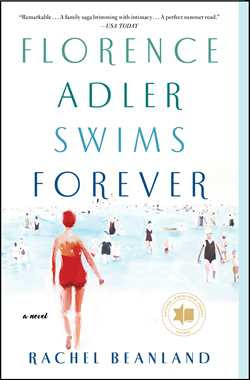 “Atlantic City, 1934. Every summer, Esther and Joseph Adler rent their house out to vacationers escaping to “America’s Playground” and move into the small apartment above their bakery. Despite the cramped quarters, this is the apartment where they raised their two daughters, Fannie and Florence, and it always feels like home.
“Atlantic City, 1934. Every summer, Esther and Joseph Adler rent their house out to vacationers escaping to “America’s Playground” and move into the small apartment above their bakery. Despite the cramped quarters, this is the apartment where they raised their two daughters, Fannie and Florence, and it always feels like home.
Now Florence has returned from college, determined to spend the summer training to swim the English Channel, and Fannie, pregnant again after recently losing a baby, is on bedrest for the duration of her pregnancy. After Joseph insists they take in a mysterious young woman whom he recently helped emigrate from Nazi Germany, the apartment is bursting at the seams.
Esther only wants to keep her daughters close and safe but some matters are beyond her control: there’s Fannie’s risky pregnancy—not to mention her always-scheming husband, Isaac—and the fact that the handsome heir of a hotel notorious for its anti-Semitic policies, seems to be in love with Florence.
When tragedy strikes, Esther makes the shocking decision to hide the truth—at least until Fannie’s baby is born—and pulls the family into an elaborate web of secret-keeping and lies, bringing long-buried tensions to the surface that reveal how quickly the act of protecting those we love can turn into betrayal.”
